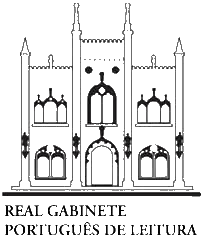Male gaze and Portuguese literature’s 90s Generation
DOI:
https://doi.org/10.37508/rcl.2022.n48a488Keywords:
Contemporary Portuguese literature, Male gaze, Gender, Manuel Jorge Marmelo, Jacinto Lucas PiresAbstract
This article aims to investigate the presence of male gaze (MULVEY, 1989), that is, the male gaze as the only possibility of active desire, manifested in two Portuguese narratives published in the 1990s: the novella Portugués, guapo y matador (1997), by Manuel Jorge Marmelo; and the novel Azul-turquesa (1998), by Jacinto Lucas Pires. Both narratives bring male protagonists, who monopolize the narrative perspective. From a contextualization of the Portuguese narrative in the post-Carnation Revolution context, we set out for a cultural reading of the text, observing the contamination of a male gaze on narrative unfoldings, descriptions of characters and narrative details.
Downloads
References
FOUCAULT, Michel. As palavras e as coisas. Traduzido por Salma Tannus Muchali. São Paulo: Martins Fontes, 2002.
FURLAN, Vivian Leme. A liberdade feminina como força criadora: Natália Correia, o matrismo e o pós-matrismo. 2021. 265 p. Tese (Doutorado em Estudos Literários) – Faculdade de Ciências e Letras, Universidade Estadual Paulista (Unesp), Araraquara, 2021.
MARMELO, Manuel Jorge. Portugués, guapo y matador. Porto: Campo das Letras: 1997.
MULVEY, Laura. Visual pleasure and narrative cinema. In: MULVEY, Laura. Visual and other pleasures. Nova Iorque: Palgrave, 1989. DOI: https://doi.org/10.1007/978-1-349-19798-9
PIRES, Jacinto Lucas. Azul-turquesa. Lisboa: Edições Cotovia, 1998.
REAL, Miguel. O romance português contemporâneo: 1950–2010. Alfragide: Editorial Caminho, 2012.
REIS, C. A ficção portuguesa entre a Revolução e o fim de século. In: Scripta, v. 8, n. 15, 2004, Belo Horizonte. Disponível em: http://periodicos.pucminas.br/index.php/scripta/article/view/12566/9868. Acesso em: 6 abr. 2022.
ROTHWELL, Phillip. A canon of empty fathers: paternity in Portuguese literature. Cranbury, NJ: Lewisburg Bucknell University Press, 1997.
Downloads
Published
How to Cite
Issue
Section
License
Authors who publish in Convergência Lusíada agree with the following terms:
- Authors retain copyright and grant the journal right of first publication with the work simultaneously licensed under a Creative Commons Attribution-NonCommercial 4.0 International License (CC-BY-NC 4.0) that allows others to share the work with an acknowledgment of the work's authorship and initial publication in this journal.
- Authors may enter into separate, additional contractual arrangements for the non-exclusive distribution of the journal’s published version of the work (e.g., post it to an institutional repository or publish it in a book), with an acknowledgment of its initial publication in this journal.
- Authors are permitted and encouraged to post their work online (e.g., in institutional repositories or on their website) prior to and during the submission process, as it can lead to productive exchanges, as well as earlier and greater citation of published work.

Revista Convergência Lusíada is licensed under a Creative Commons - Atribuição-NãoComercial 4.0 Internacional.









